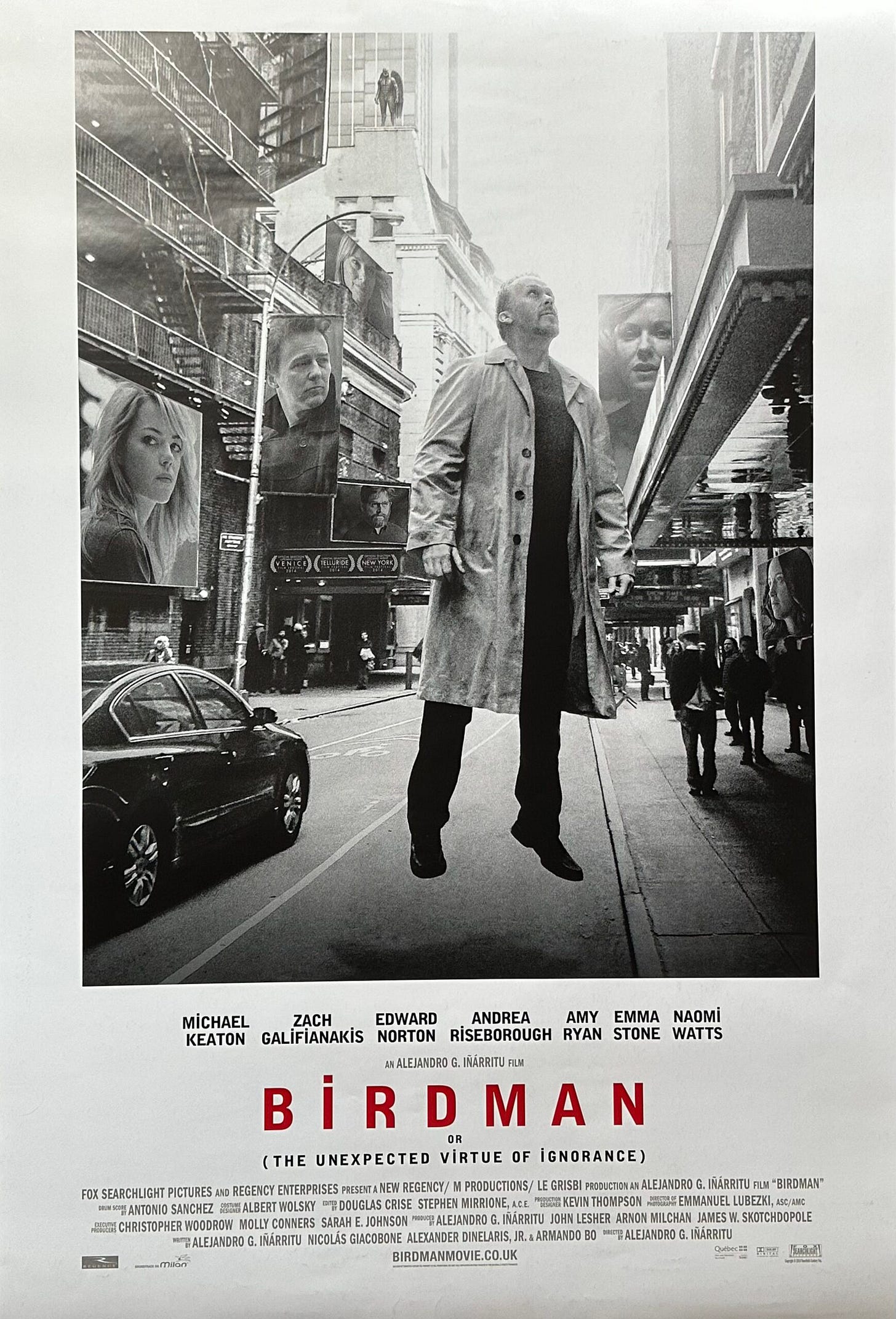The Rise and Fall of Genius: Part II
On "Birdman" and the people who burn, burn, burn.
“Yes, I know whence I came!
Insatiable like fire,
I glow and am consumed.
Light, all that I seize;
Ash, all that I leave:
This is what I am — a flame!”
~ Nietzsche1
To transcend, to rise above, begin by looking up: we might all be in the gutter, as Wilde’s Lord Darlington once quipped, but we can still look at the stars. There in the heavens is where we find, in the opening shot of director Alejandro Iñárritu’s Birdman, a fiery comet blazing a path through the sky.
Look up for too long, however, and you risk being blinded by the brilliance of what you see. Come too close to that flame and you’ll burn up and crash back to Earth like Icarus after the fall. Down here is where we’re left with the second shot in Birdman: a washed-up jellyfish laid out on a flat beach, picked at by scavenging birds.
Then, suddenly, we enter the visual stream-of-consciousness that is Birdman’s central narrative, an abrupt turn into comedy from its tragic opening images. Adjusting to this tonal shift the first time I watched Birdman, I wondered, What is this movie? Is it the story of Riggan Thomson, a has-been actor attempting to sell himself as an artistic genius by staging a play, or is it an extended metaphor for... something? Is it satirical or sincere? On the side of “high art” or consumers of comic-book movies? Genius or a little too pleased with itself? (My answer to all these questions: yes.)
That opening image of the fireball rocketing across the sky remained in my mind like an afterimage throughout the rest of the film. Stefan Zweig described “great men” as “shooting stars, which flash on indeterminable paths”. In Birdman, Riggan believes he’s one of these comets burning brightly, and he intends to burn for a massive audience. The obvious thematic metaphor suggests itself: Icarus, the flying then falling man. But Riggan’s stubborn commitment and determination invoked another figure from Greek myth: Achilles.




